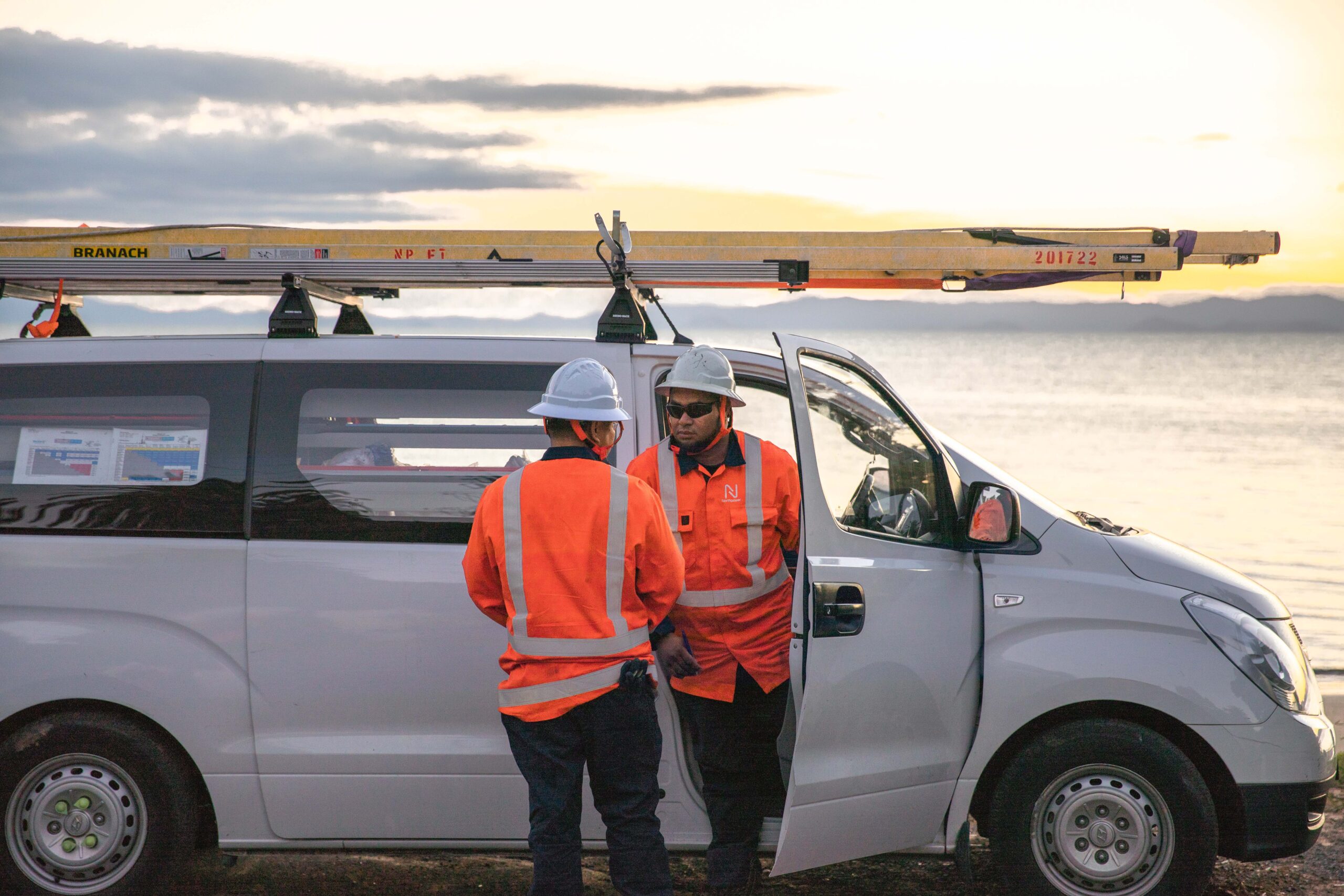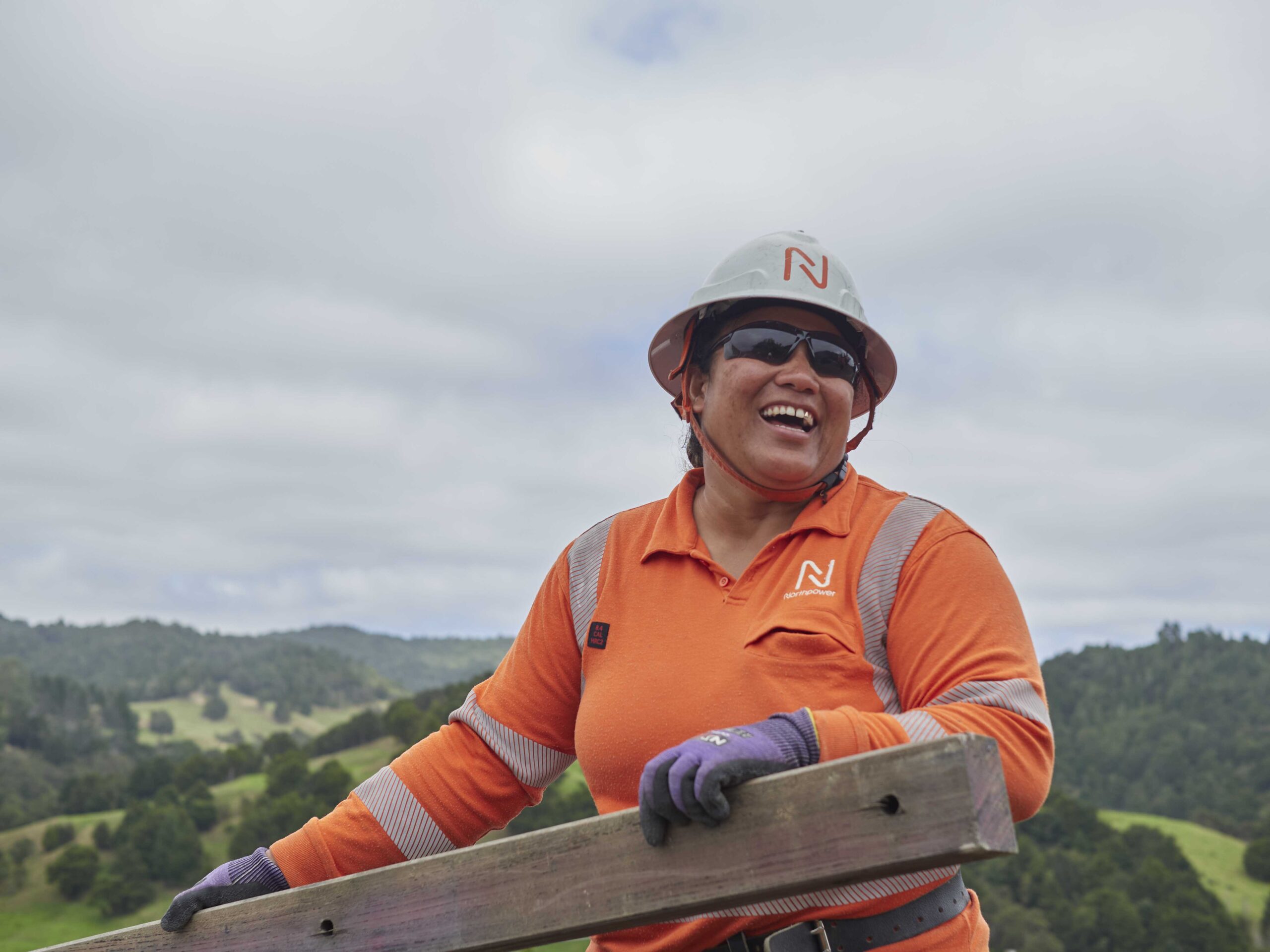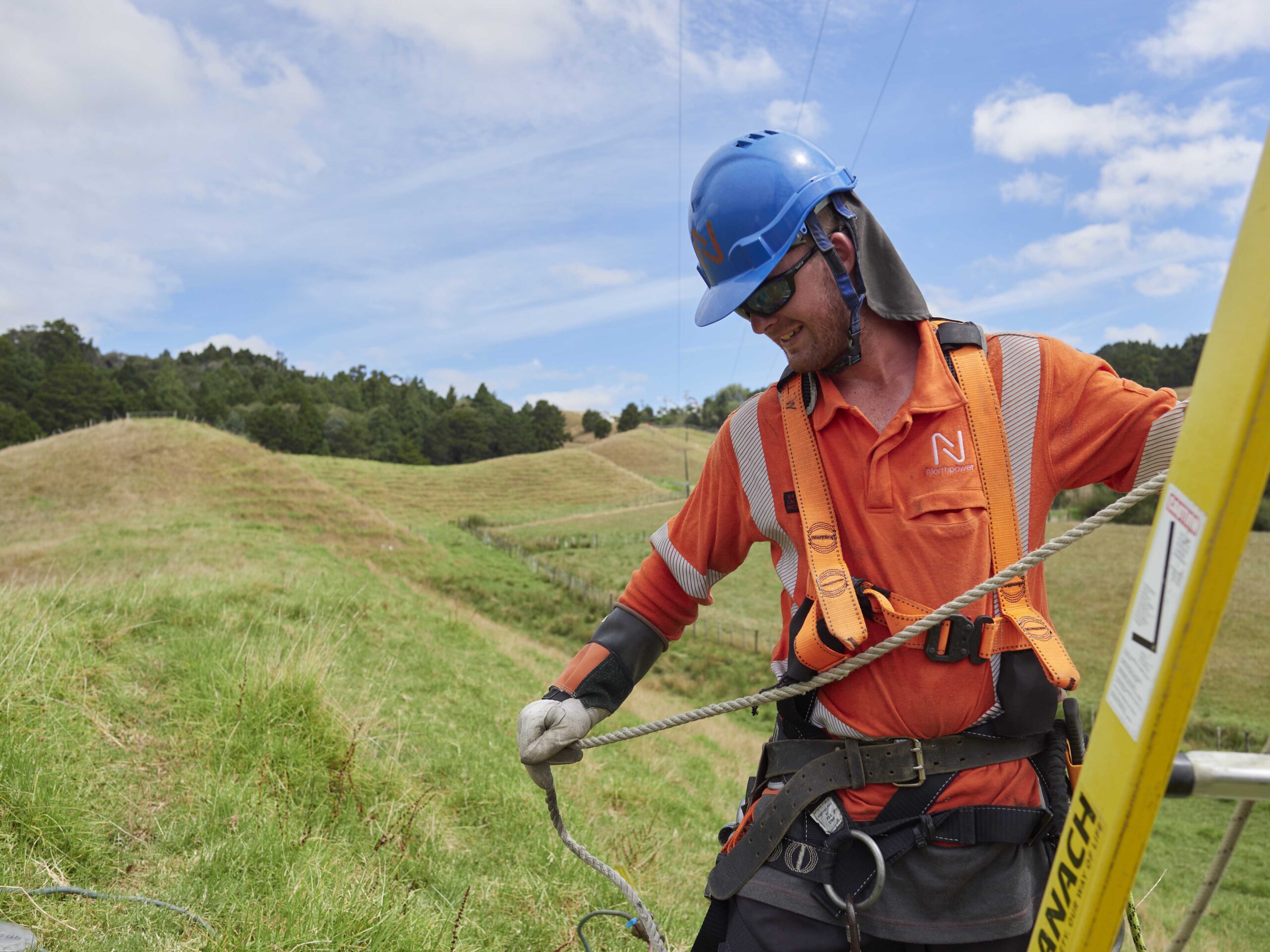Working around our network
We're all responsible for keeping people safe
If your business requires you to be working in and around our network, either underground where network cables may be located, or overhead near power poles, overhead lines, or fibre cables, it is vital you talk to us first. Together, we can help keep your staff and contractors safe, protecting your power supply, your assets and your reputation.
The WorkSafe Excavation Safety Good Practice Guideline has minimum safe work practices for carrying out any work near all underground and overhead pipes, power, communications lines and any other utility services. Another important document is the Worksafe Guide for Safety with Underground Services.
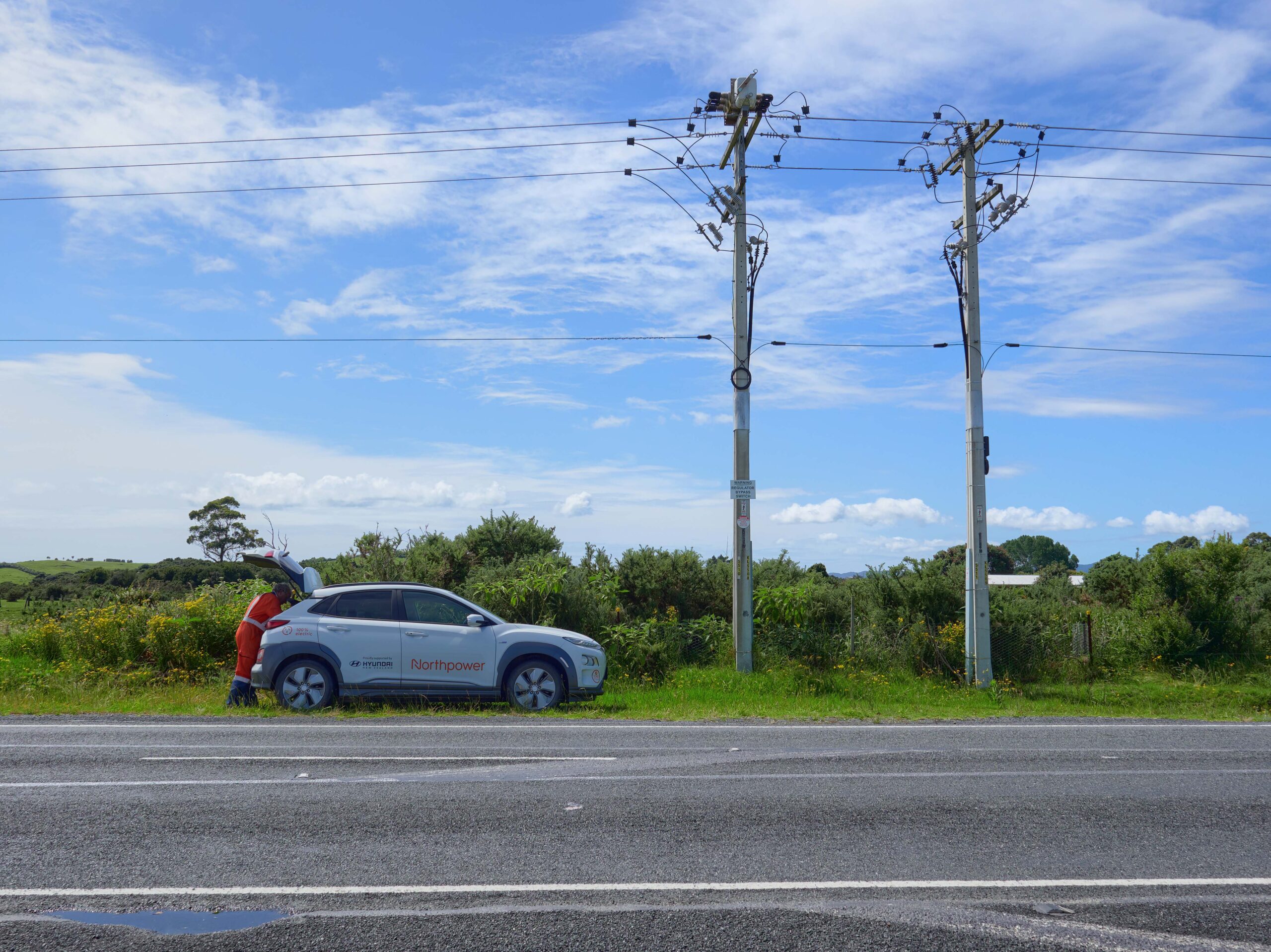
What is a close approach consent?
A close approach consent is required if you’re going to be working closer than four metres to lines, poles or power boxes, which can be obtained by completing our working near lines application form.
You can use our free service to assess your worksite and get advice on how to carry out work safely around power, as well as obtain any mandatory close approach consent. We need at least two working days’ notice before you start to schedule resources for your site.
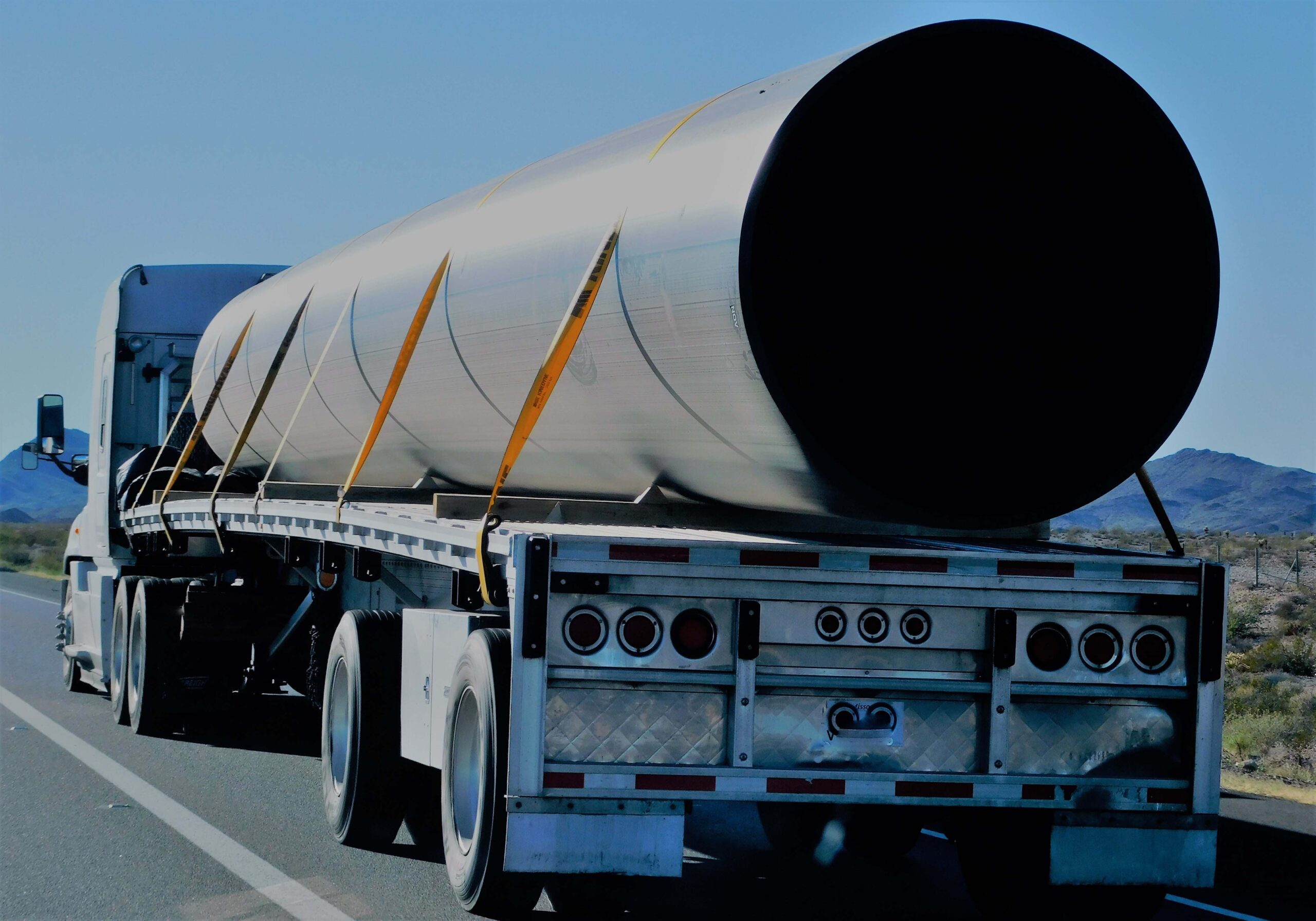
Safety above ground
If you’re wanting to work within four (4) metres of overhead lines or transport high loads over 4.3 metres, it’s important you’re always aware of overhead lines and keep safe when working near them. If you hit an overhead line there’s a real risk of electrocution, explosion, flash over, or fire.
You must apply for a high-load permit if you plan to move a tall structure, such as a house or a boat, with a height that is 4.3m or greater. If you fail to obtain a high load permit and damage our network you could be liable for repair costs.

Safety below ground
To avoid damage and risk of electrocution, it’s important to know where power or fibre cables are before you dig. We can help with free advice on safe working practices around power poles and help with locating cables.
We offer a service to help you to locate underground cables, pipes and ducts before you begin digging or excavating. We also provide free advice on working safely around power poles.
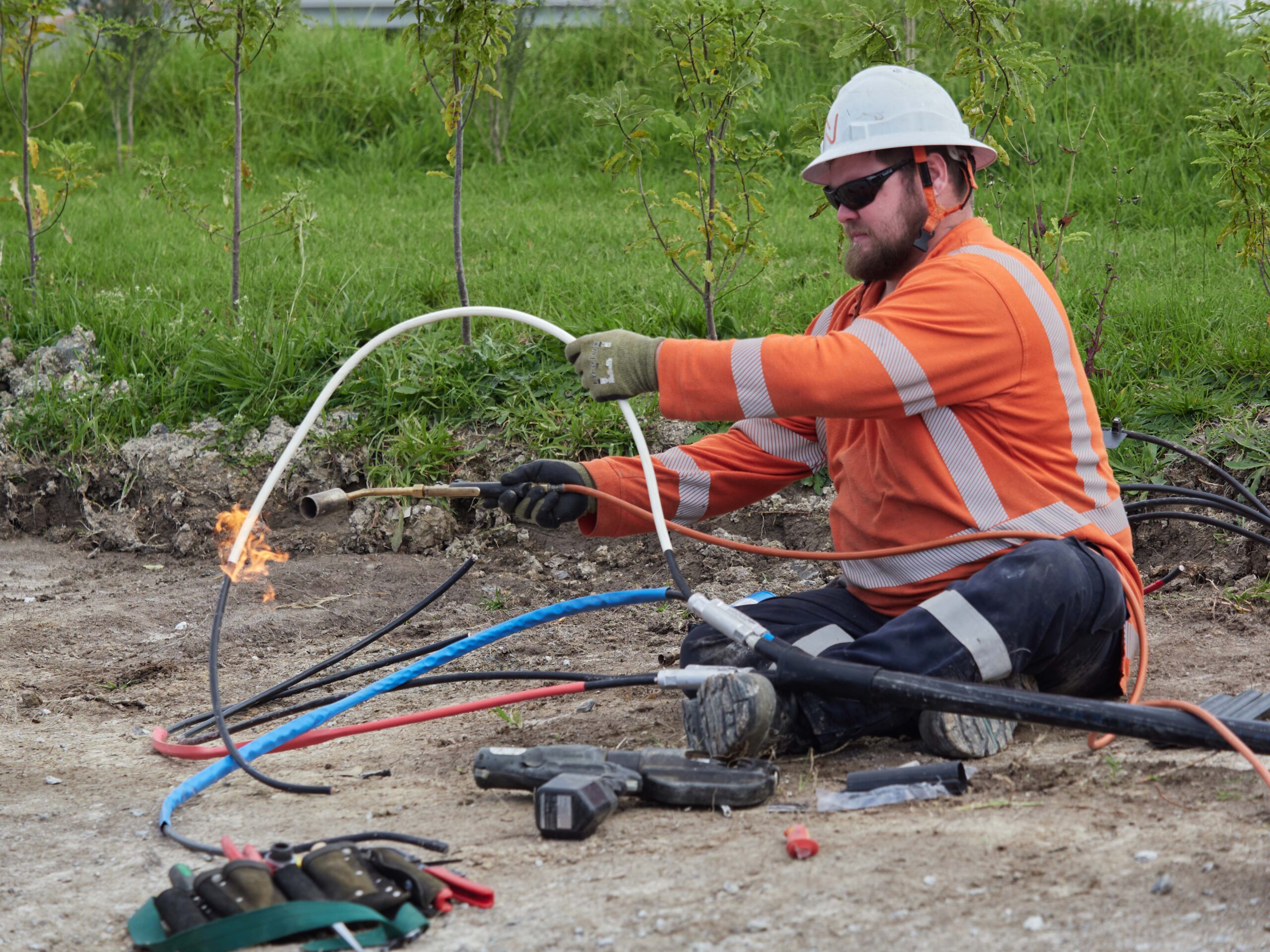
Help us to keep people safe
As a business owner, it is your responsibility to protect the safety of people on your site. If you hit an electricity cable or overhead power line there is a risk of:
- Fatal electrocution or critical injury
- Flashover causing serious burns
- Cable explosion
- Fire
- Loss of critical supply to hospitals, medically dependent customers and other businesses
If an electricity cable is cut by an excavator, or contact is made with an overhead line, anyone touching metal parts of the machine may receive an electric shock. Electricity can also travel through the ground, or any metal object in contact with the ground, causing the neighbouring ground to become live.
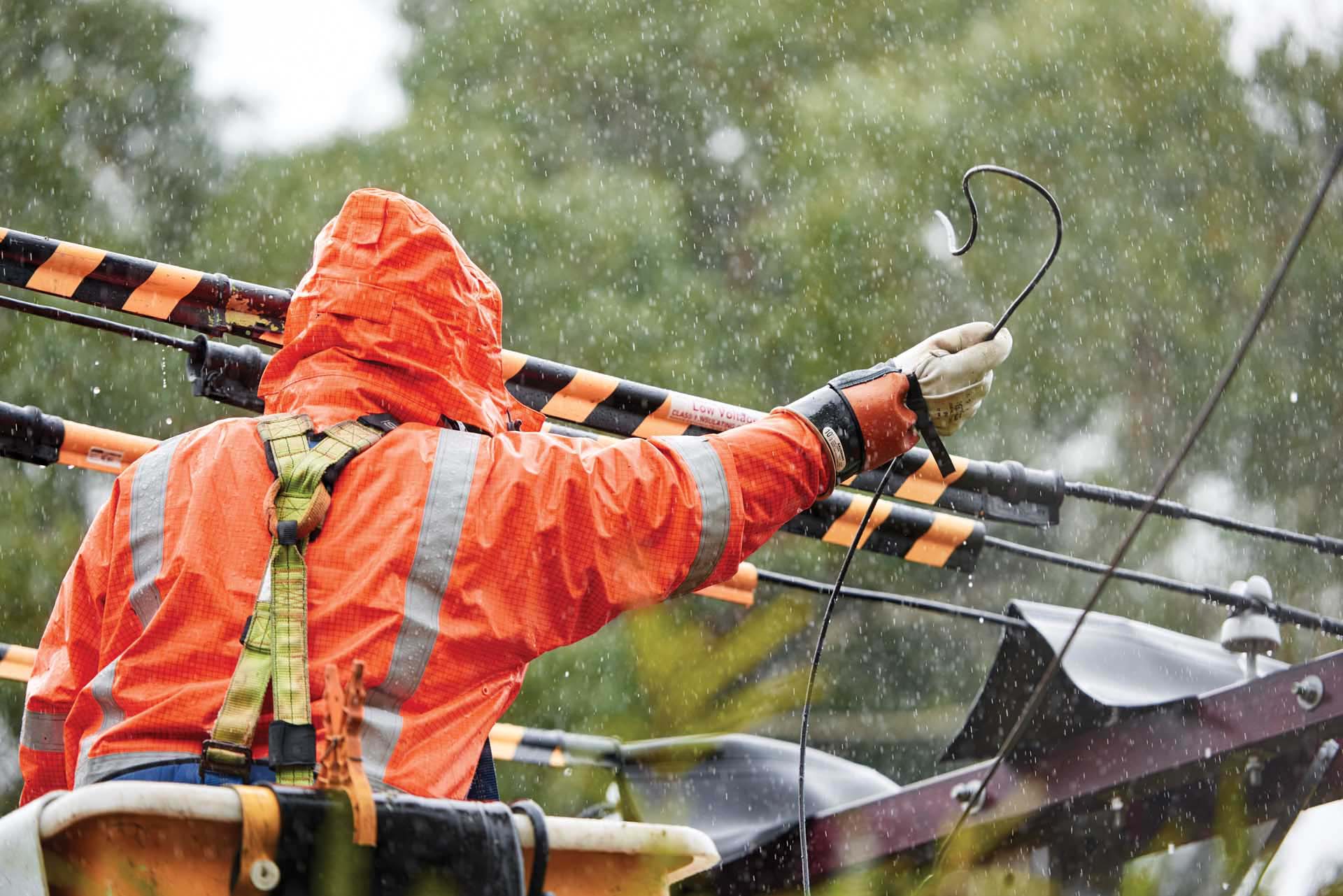
Help us protect the network
Not only is there a risk to human life when working around our network, but there is also a significant risk to our infrastructure and everything that relies on it. Damage to communication cables can risk harm to people and assets.
If you hit a communications cable there is a risk of:
- Loss of eyesight from viewing laser light directly from the broken cable
- Disruption to signalling or cutting off monitoring or control from an electricity substation
- Injury from the brittle glass used in the cables which can break easily
- Interruption of critical communications services
Your legal requirements
All underground services must be located and confirmed, by way of industry-recognised techniques, including hand digging and hydrovacing, before any excavation can be carried out with machinery.
Other laws and regulations specifying safe working practices to be followed are:
If we consider that anyone has breached any of the above laws and regulations, we may refer the matter to WorkSafe for investigation. Northpower has a duty to report notifiable events to WorkSafe. We may also take legal action to recover both the cost of repairs and the cost of lost business from any party responsible for damaging our network.
If you are ever unsure of what the requirements are, we strongly encourage you to contact us – we’re here to help.
